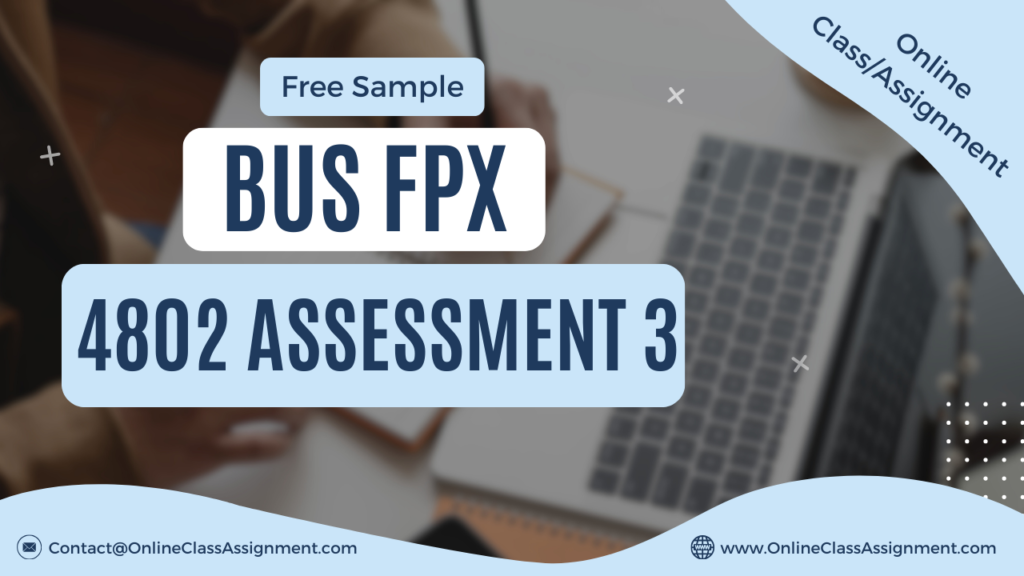
BUS FPX 4802 Assessment 3 Stakeholder Analysis and Findings
Student Name
Capella University
BUS-FPX4802 Change Management
Prof. Name
Date
Stakeholder Analysis
A stakeholder, within the project context, denotes an individual engaged in the project whose viewpoint can be positively or negatively influenced by the changes affecting their role (Smith, 2000). The stakeholders in this project encompass a spectrum ranging from sponsors to operational staff, each holding varying degrees of interest and potential impact (Hoory & Bottorff, 2022). For instance, within our project, the business administrator assumes a critical role in license and certificate processing. Her perception of the changes may vary from favorable to skeptical, necessitating careful consideration (Hoory & Bottorff, 2022). Conducting a stakeholder analysis aids in comprehending their concerns, devising effective communication strategies, mitigating conflicts, and capitalizing on individual strengths (Hoory & Bottorff, 2022).
BUS FPX 4802 Assessment 3 Stakeholder Analysis and Findings
For this project, interviews were conducted with key stakeholders: the sponsor, the client, and the business administrator. Each of these individuals wields significant influence over project outcomes and experiences (Hoory & Bottorff, 2022). The interviews aimed to elucidate their needs, primary requirements, limitations, and interests within the scope of the certification/licensure project (Hoory & Bottorff, 2022).
The Client: Sylvester Mitchell
The first interviewee, Sylvester Mitchell, embodies a dual role as both a beneficiary and facilitator of the project. His concerns primarily revolve around the practical implications of the changes, particularly in terms of workflow disruptions and administrative burdens (Smith, 2000). As the driving force behind the project, his insights are invaluable for aligning strategies with operational realities (Smith, 2000).
The Sponsor: Brian
The sponsor, Brian, holds a multifaceted role encompassing leadership, financial stewardship, and strategic direction (Taylor, Chait, & Holland, 2006). His vision for the project emphasizes its potential to enhance MANUP’s credibility and catalyze future initiatives (Taylor, Chait, & Holland, 2006).
The Business Administrator
Lastly, the business administrator represents the operational backbone of the organization, responsible for ensuring seamless execution of day-to-day activities (Taylor, Chait, & Holland, 2006). His emphasis on documentation, clear communication, and structured processes reflects a pragmatic approach to change management (Taylor, Chait, & Holland, 2006).
Inputs, Processes, and Outputs Model
The project’s success hinges on effectively managing inputs, processes, and outputs to achieve desired change states. The following table illustrates the current level of stakeholder commitment and emphasizes the amount of change required for successful completion.
| Inputs | Processes | Outputs |
|---|---|---|
| – Board/Employees | – Process Creation/Flow | – Board/Employee Satisfaction |
| – Concerns/Feedback | – Software Implementation | – Positive Impact to the Organization |
| – Financial Gains ($) |
Figure 1 – Level of commitment needed for successful completion
Culture and Climate for Change at MANUP
MANUP embodies a culture of dedication and collaboration, exemplified by its working board model (Taylor, Chait, & Holland, 2006). The team’s collective commitment to the organization’s mission fosters an environment conducive to change and innovation (Hoory & Bottorff, 2022).
Personal Story about Sylvester
Sylvester Mitchell’s journey from addiction to redemption epitomizes resilience and faith. His transformative experience informs MANUP’s mission, underscoring the organization’s profound impact on individuals and communities (manuprehab.org).
Organization Readiness for Change
Despite apprehensions, MANUP is primed for growth and eager to embrace change (Hoory & Bottorff, 2022). Key themes such as documentation, accountability, and systemization emerged as priorities, signaling a readiness to navigate the complexities of the certification/licensure project (Hoory & Bottorff, 2022).
References
Hoory, L., & Bottorff, C. (2022, August 7). What Is A Stakeholder Analysis? Everything You Need To Know. Forbes Advisor. Retrieved from https://www.forbes.com/advisor/business/what-is-stakeholder-analysis/
manuprehab.org. (n.d.). About Us. Retrieved from https://www.manuprehab.org/about-us
Smith, L. W. (2000, September 7). Stakeholder analysis – a pivotal practice of successful projects. Project Management Institute. Retrieved from https://www.pmi.org/learning/library/stakeholder-analysis-pivotal-practiceprojects-8905
BUS FPX 4802 Assessment 3 Stakeholder Analysis and Findings
Taylor, B. E., Chait, R. P., & Holland, T. P. (2006, September – October). The New Work of the Nonprofit Board. Harvard Business Review. Retrieved from https://hbr.org/1996/09/the-new-work-of-the-nonprofit-board
Get Capella University Free Business Samples
BUS FPX 3007
BUS FPX 3011
BUS FPX 3021
BUS FPX 3022
BUS FPX 3030
BUS FPX 3040
BUS FPX 3050
BUS FPX 4012
